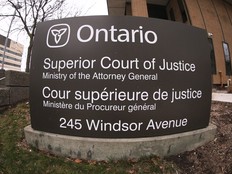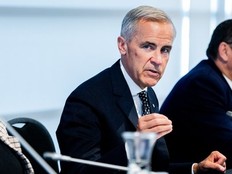GOLDSTEIN: The hazards of becoming a ‘green energy superpower’

Article content
One of the realities politicians don’t like to talk about is that turning Canada into a green energy superpower — as Prime Minister Mark Carney has promised — means eliminating the rights of communities directly affected by energy-related projects to have a say in them.
Often with disastrous results.
That controversy is playing out in Ontario, where Premier Doug Ford is determined to pass legislation opening up the province’s mineral-rich Ring of Fire to mine the raw materials needed to manufacture electric vehicle batteries, including lithium, cobalt, nickel, graphite and copper.
The purpose is to create supply chains for the heavily subsidized EV industry the provincial and federal governments are developing in Ontario.
The proposed legislation — Bill 5 — would empower the government to create special economic zones where it could override provincial and municipal legislation, including labour and environmental regulations, to speed up the process.
Ford dismisses opposition to Bill 5 — including some First Nations leaders who warn that blockades reminiscent of 2012’s “Idle No More” movement could be resurrected in opposition — as the work of “radical environmentalists”.
That’s the opposite of the view Ford had when he was first elected in 2018 and killed the previous Liberal government’s Green Energy Act, arguing it took away the rights of municipalities to have any say on the location of industrial wind factories and solar farms in their communities.
“The Green Energy Repeal Act eliminates a piece of legislation that introduced disastrous changes to Ontario’s energy system that led to rising electricity rates for families and businesses” the Ford government said in announcing its decision.
“By repealing this act, we’re restoring planning decisions to municipalities that were stripped by the previous government and ensuring local voices have the final say on energy projects in their communities.”
Ford justified the $231 million cost of cancelling 750 renewable energy projects approved under the GEA by arguing it would save hydro consumers $790 million in contracts for unneeded electricity.
He was right to scrap the GEA.
It was horrendous legislation and its demise was welcomed by the Association of Municipalities of Ontario.
It made Ontario’s electricity grid less efficient because it required the province to buy unreliable wind and solar power from politically connected green energy developers at inflated prices in 20-year contracts.
Two provincial auditors general investigated deals made under the GEA.
They reported Ontario electricity consumers had overpaid $9.2 billion for green energy because the Liberals ignored the advice of their own experts on how to price it.
They found that because it allowed the province to supersede planning and regulatory processes, no business case was made under the GEA to determine ultimate costs.
The legislation turned neighbour against neighbour as developers, allied with the provincial government, quietly signed deals to lease privately-owned lands in rural communities for massive wind turbines and solar farms, with the projects then sprung on those communities.
The Liberals ignored warnings from their own environment ministry that the province needed stricter noise limits on wind turbines, had no way to monitor or enforce them and that computer models for determining residential setbacks were flawed.
These blunders were the result of the previous Liberal government racing into green energy projects while ignoring due diligence, lessons the Ford government appears to have forgotten in 2025.
The Liberals promised that the GEA would attract billions of dollars in new investment and massive job creation, none of which materialized, just as the Ford government is promising Bill 5 will do today.











Postmedia is committed to maintaining a lively but civil forum for discussion. Please keep comments relevant and respectful. Comments may take up to an hour to appear on the site. You will receive an email if there is a reply to your comment, an update to a thread you follow or if a user you follow comments. Visit our Community Guidelines for more information.